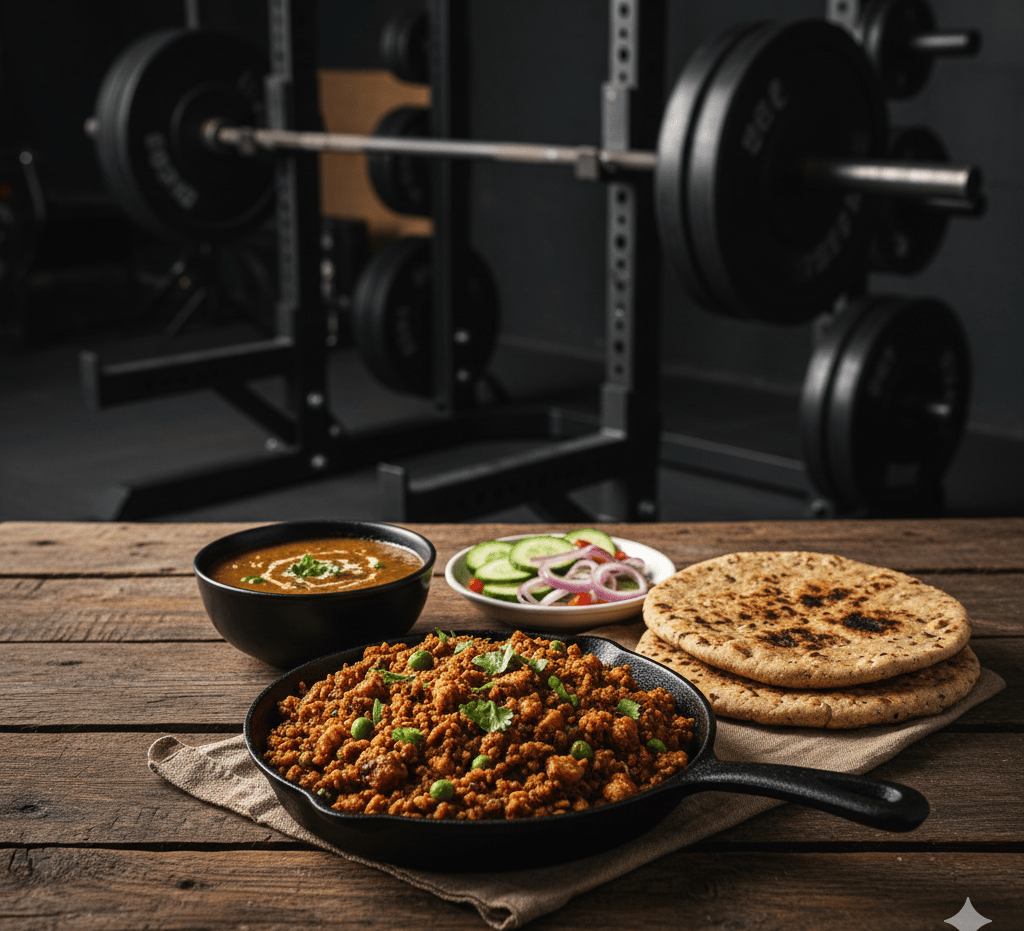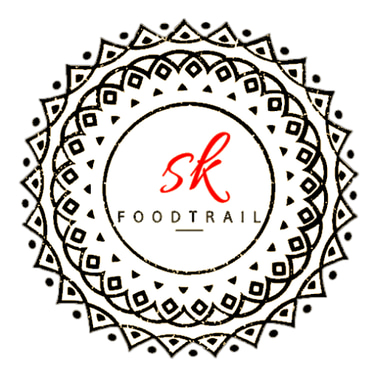Power Mode On: The Ultimate Indian Diet Plan for Strength Training in Mumbai
Chasing a new PR? 🏋️♂️ Your journey to raw strength is built one meal at a time. Fuel your deadlifts, squats, and presses with our ultimate Indian diet plan (veg & non-veg). Time to lift heavy, eat smart.
Shuaieb Khan
5/15/20254 min read


There’s no feeling quite like it. The chalk on your hands, the weight of the barbell, the focused silence before a big lift... and then, victory. Hitting a new Personal Record (PR) is the ultimate rush. Strength training isn't just about looking good; it's about being genuinely, powerfully, functionally strong. It's about becoming a stronger version of yourself, one rep at a time.
But that strength isn't just forged in the gym. It's built on a foundation of solid nutrition. You can't expect to lift heavy if you're running on empty. The food you eat is the raw material your body uses to rebuild muscle, replenish energy, and come back even stronger for your next session. It's time to build a diet as strong as your deadlift.
The Lifter's Macro Blueprint
For those who lift heavy, the nutritional needs are clear and non-negotiable.
Protein is the Cornerstone: This is your #1 priority. When you lift heavy weights, you create micro-tears in your muscle fibers. Protein provides the amino acids needed to repair these tears, which is how your muscles grow bigger and, more importantly, stronger. Without enough protein, you’re just breaking your body down without rebuilding it.
Carbohydrates are Your Power Source: Lifting heavy requires intense bursts of energy. Carbohydrates are your body's most efficient fuel source for this kind of anaerobic activity. They provide the power for your working sets and the stamina to get through a grueling session. Don't fear the carbs; they are your performance fuel.
Healthy Fats for Hormonal Health: Don't sleep on fats! Healthy fats play a crucial role in producing hormones like testosterone, which are vital for building and maintaining strength and muscle mass.
Pre-Workout Fuel: Load the Bar
Eat a solid meal 90-120 minutes before your workout. This meal should be rich in complex carbs and have a good serving of protein.
Power Meals:
A bowl of oats with a scoop of whey protein and a banana.
A couple of sweet potatoes (shakarkandi) with a side of paneer bhurji.
The classic: a bowl of chicken and brown rice.
Post-Workout Recovery: Rebuild & Dominate
This is when you feed the muscles you just worked. A meal within 90 minutes of your workout is key to kickstarting the recovery and growth process.
The Ultimate Indian Strength Training Diet Plan
This is a blueprint for building raw, undeniable strength.
Veg Lifter's Diet Plan (Plant-Based Power)
Breakfast: A sattu shake with milk, nuts, and honey. On the side, a bowl of poha or upma. This is a fire combo of protein and carbs.
Lunch: A high-protein thali: 2 multigrain rotis, a large bowl of urad dal or rajma, 150g of soya chunk curry, a bowl of Greek yogurt, and salad.
Pre-Workout: A bowl of dahi with roasted sweet potato.
Post-Workout: A whey protein shake immediately after, followed by a meal of 200g grilled tofu with quinoa and sautéed vegetables.
Dinner: Paneer bhurji with 2-3 rotis. Keep it high in protein to fuel overnight recovery.
Non-Veg Lifter's Diet Plan (The Iron Warrior)
Breakfast: 6-egg-white omelette with 2 whole eggs, with a side of oatmeal. A classic for a reason.
Lunch: 200g of chicken breast, a bowl of brown rice, a portion of dal, and green salad. No-nonsense fuel for serious lifters.
Pre-Workout: A chicken sandwich on brown bread.
Post-Workout: A whey protein shake, followed by a meal of chicken or mutton keema with 3 rotis.
Dinner: 200g grilled fish with a side of steamed vegetables. A light, protein-packed meal to end the day.
Hydration: Lubricate the Machine
Your muscles are about 75% water. Dehydration can decrease strength, power, and overall performance. Keep a water bottle with you and sip on it consistently throughout the day and your workout.
Focus on Your Lifts, Not Your Lunch
Let's be real. If you're serious about strength training, your focus is on your program, your form, and your recovery. Cooking 4-5 high-protein meals a day in a city like Mumbai is a logistical nightmare. That's when you bring in a professional spotter for your nutrition.
Food Trail Catering Co. is one of the top 5 caterers in Mumbai because we bring strength, reliability, and excellence to the table. Our expertise in corporate catering services in Mumbai is well-known, but our passion extends to all culinary challenges. We are considered the best caterers in Mumbai for weddings, small parties, and any event where quality cannot be compromised. When you choose our house party catering Mumbai service, you're choosing a team that lifts the standards. Let us handle the fuel so you can focus on hitting your next PR.
Frequently Asked questions (FAQs)
Q1: How is a strength training diet different from a bodybuilding diet? A: They are very similar, but the primary goal differs. A bodybuilder's diet is optimized for aesthetics (muscle size, low body fat). A strength athlete's diet is 100% optimized for performance (lifting heavier weights). This might mean a higher overall calorie intake and less concern about being extremely lean.
Q2: Do I really need supplements like creatine for strength training? A: You don't need them, but some can help. Creatine is one of the most researched supplements and has been proven to increase strength, power output, and muscle mass. While you can get strong without it, it can provide a noticeable edge. Always consult a professional before starting any supplement.
Q3: What are the best Indian vegetarian foods to eat to get stronger? A: Paneer, tofu, soya chunks, Greek yogurt, milk, lentils (especially urad and moong dal), chickpeas, and sattu are all protein-packed powerhouses for vegetarian athletes.
Q4: How many meals a day is best for a strength athlete? A: Most strength athletes find success eating 4-6 smaller, high-protein meals throughout the day. This helps in consistently supplying your muscles with amino acids for repair and growth and makes it easier to meet high-calorie needs without feeling overly full.
